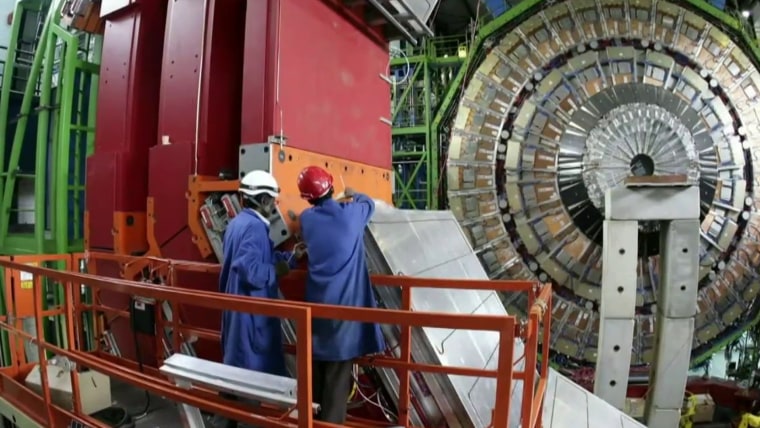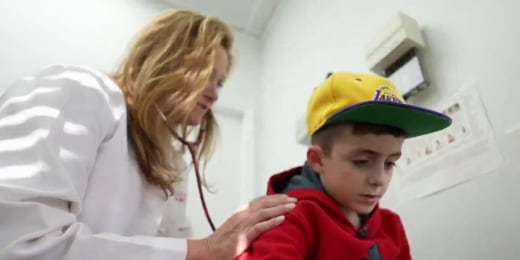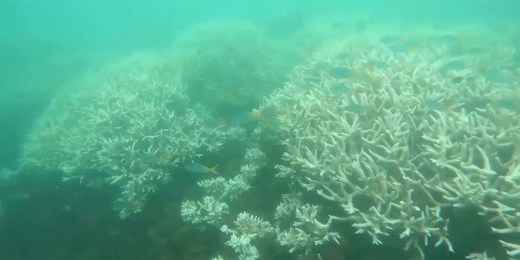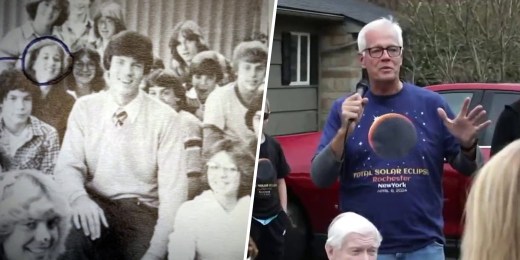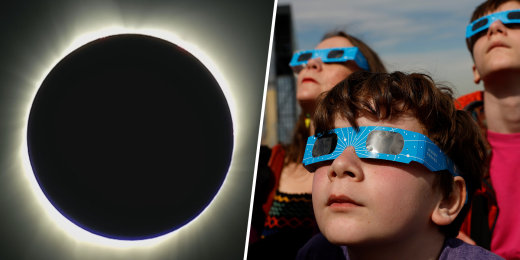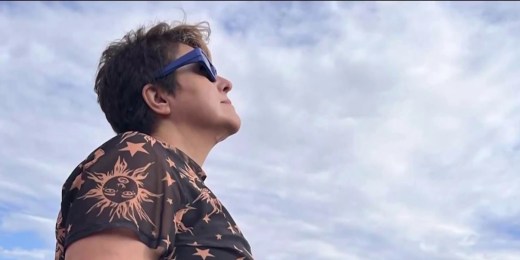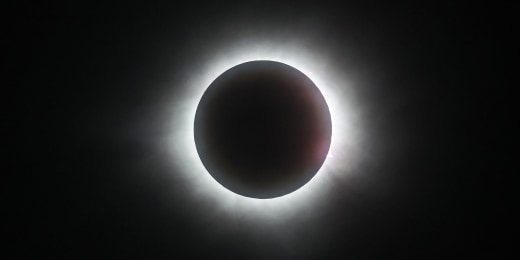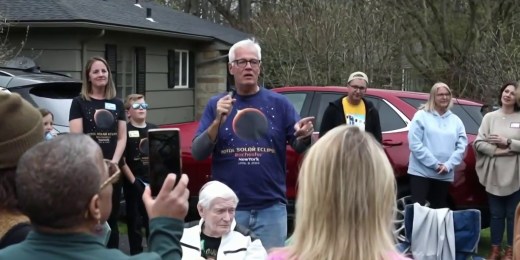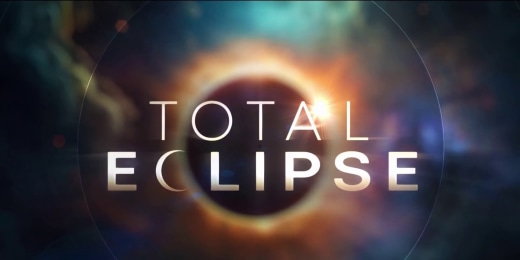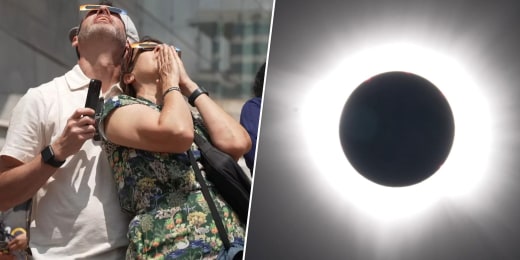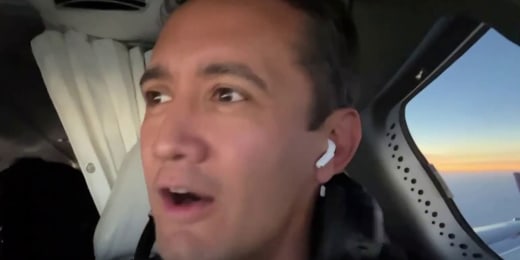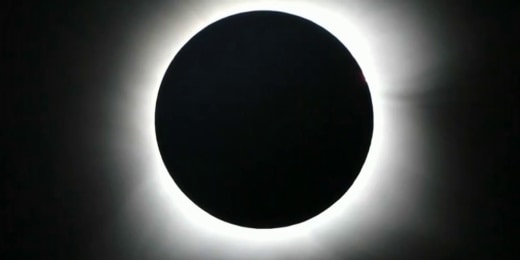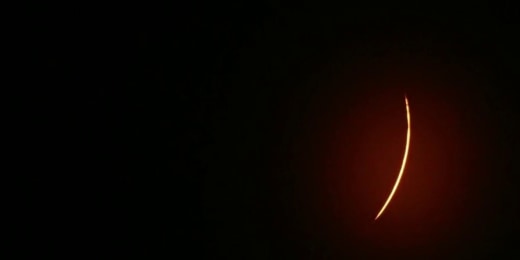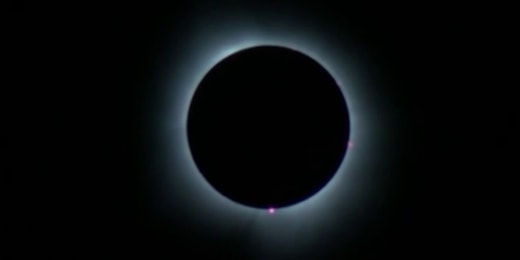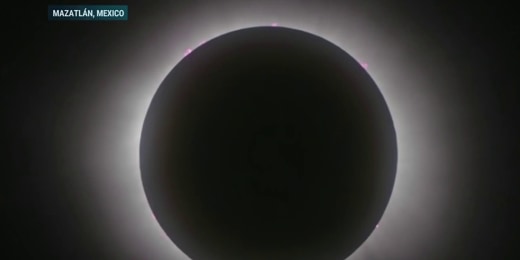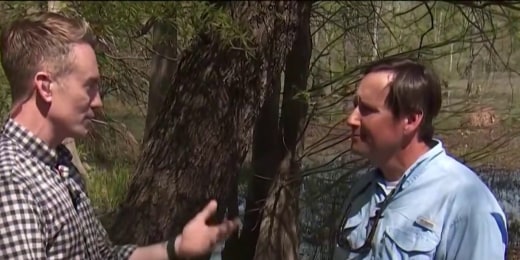IE 11 is not supported. For an optimal experience visit our site on another browser.
UP NEXT
Worsening allergies tied to climate change and severe weather 02:02
Coral scientists explain how coral bleaching happens 02:15
Science class reunites 46 years later to witness total solar eclipse 04:49
Millions gather to celebrate solar eclipse along path of totality 03:05
Meet the woman who has seen 21 solar eclipses 02:23
Scientists will use total solar eclipse to study the sun's corona 05:16
Teacher makes good on decades-old promise to watch eclipse with former students 02:57
Timelapse videos show darkness of solar eclipse totality 01:03
Special report: Solar eclipse path of totality 01:44:40
Watch emotional moments as skywatchers view solar eclipse 03:15
Gadi Schwartz reports on eclipse totality from plane above Arkansas 06:04
Total eclipse reaches last stop in the U.S. in Maine 04:11
'So memorable': New Yorkers, tourists gather in midtown Manhattan for partial eclipse viewing 02:27
'Like a cool summer night': Temperature drops as eclipse hits Cleveland 04:13
Animals active as eclipse reaches totality in Little Rock, Arkansas 04:18
'Just amazing!': Solar eclipse watchers go wild as the moment of totality passes over Dallas 03:47
NBC’s Morgan Chesky and family witness total eclipse in Kerrville, Texas 04:31
Watch: Solar eclipse reaches totality in Mazatlán, Mexico 04:15
Thousands pack Indianapolis Motor Speedway to view eclipse 03:48
Natural reactions: How animals may behave during the eclipse 02:43
Hadron collider scientists discover three subatomic particles never seen before 07:31 Beneath the Swiss Alps lives the world’s largest and most powerful particle accelerator and recently scientists found three new subatomic particles never seen before. NBC News’ Jacob Ward is joined by Yale University physics Professor Dr. Sarah Demers to discuss how this week’s discovery could help researchers learn how the universe was born and what the future looks like. July 12, 2022
Read More UP NEXT
Worsening allergies tied to climate change and severe weather 02:02
Coral scientists explain how coral bleaching happens 02:15
Science class reunites 46 years later to witness total solar eclipse 04:49
Millions gather to celebrate solar eclipse along path of totality 03:05
Meet the woman who has seen 21 solar eclipses 02:23
Scientists will use total solar eclipse to study the sun's corona 05:16 